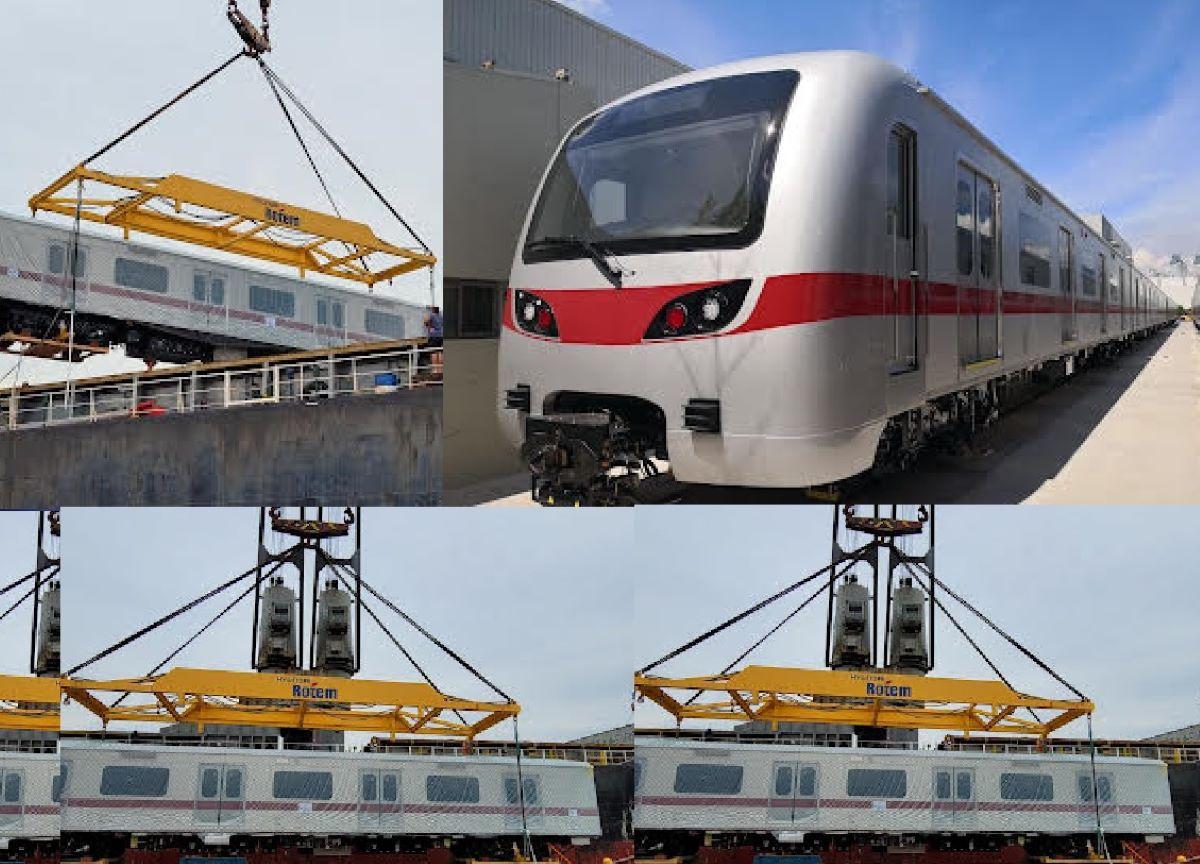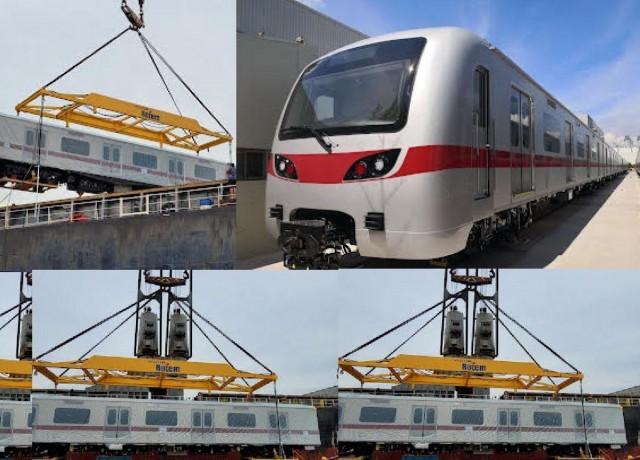New MRT7 trains from Korea arriving next week, says SMC

The first batch of new trains for the Metro Rail Transit Line 7 project are set to arrive from South Korea next week, San Miguel Corp. (SMC) announced Wednesday, but it admitted there are challenges in construction due to the COVID-19 pandemic.
In a statement, the company said the trains, which consist of six cars or two trainsets procured from South Korea’s Hyundai ROTEM, have cleared inspections and factory acceptance testing, with the country’s national rail manufacturer, Korea Railroad Corporation (KORAIL), which serves as the SMC’s adviser.
Each trainset is 65.45 meters long or well over the entire length of an Olympic-size swimming pool, which is 50 meters.

“The timely arrival of these brand new, high-quality trains from South Korea - known as one of the world’s best train and rail systems builders -- is such a welcome development, and I believe holds a lot of significance,” SMC president Ramon Ang said.
“At a time when many are feeling uncertain about our country’s future because of the pandemic, this shows that the job of nation-building, continues; that the work of improving our infrastructure, boosting our economic growth prospects, and investing in our country’s brighter future, also doesn’t stop —especially for us in San Miguel,” Ang added.
More trains are set to arrive in the following months, up to next year, the SMC chief said, until all 108 cars or 36 trainsets the company acquired, are delivered.
Amid the continuing pandemic restrictions and pending right-of-way issues, the project itself is still at over 54% completion rate, with installation of bored piles, girders, and other foundational works on a significant portion of the project, already completed, according to the company.
“Right now, construction activities on the guideway and the stations are ongoing. Electronic and mechanical works also continues," Ang said.
He added, "The MRT7 project is in many ways more difficult and complex than even our recently-competed Skyway Stage 3 -- which in itself is an engineering feat. This is because MRT7 has added complexities such as electric power systems, computer and communications systems, signaling systems, and automatic fare systems, among others.”
“There are many causes of delay, from necessary pandemic restrictions, to ROW issues, but as with all SMC projects, we apply 110% effort to all the areas we can work on, so as to minimize delays. The most important thing is we don’t stop, we keep on progressing. We thank our national government, especially President Duterte, the DoTR, the DPWH, and the LGUs of Quezon City and Bulacan, for their continuing support for this project,” he added.
SMC also reported that manufacturing of other important equipment needed for the MRT7 which were all sourced from various countries, have also been completed.
Various other railway operations equipment such as those needed for automatic fare systems, communication systems, signaling systems, power supply systems, third rail, track works systems and rolling stock maintenance equipment—used for the maintenance of trains—are also set to be delivered from various countries throughout the year.
The first test run of the project is set for December 2022, the SMC said.
The P63-billion MRT7 project has three major components that include: a 24.7-kilometer mass rail transit system from North Avenue, Quezon City to San Jose del Monte, Bulacan, comprised of 14 stations; an intermodal transportation terminal that will serve as a transportation hub catering to other types of public transportation; and a 19-kilometer highway from San Jose del Monte to Bocaue, Bulacan.
The railway system project is expected to accommodate up to 850,000 passengers daily and cut travel time between Quezon City and Bulacan from four hours to 34 minutes. —LBG, GMA News




